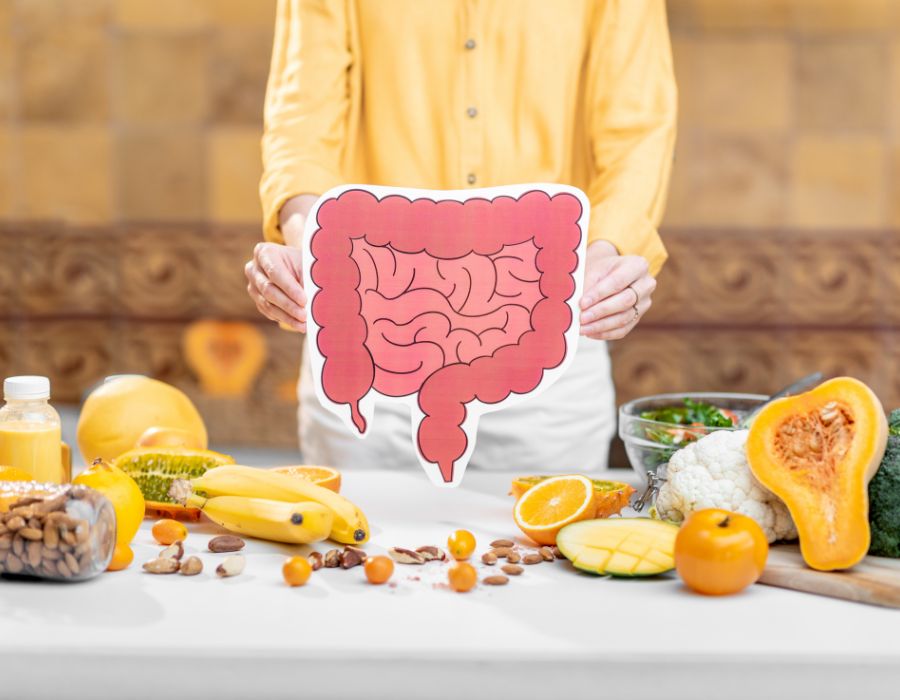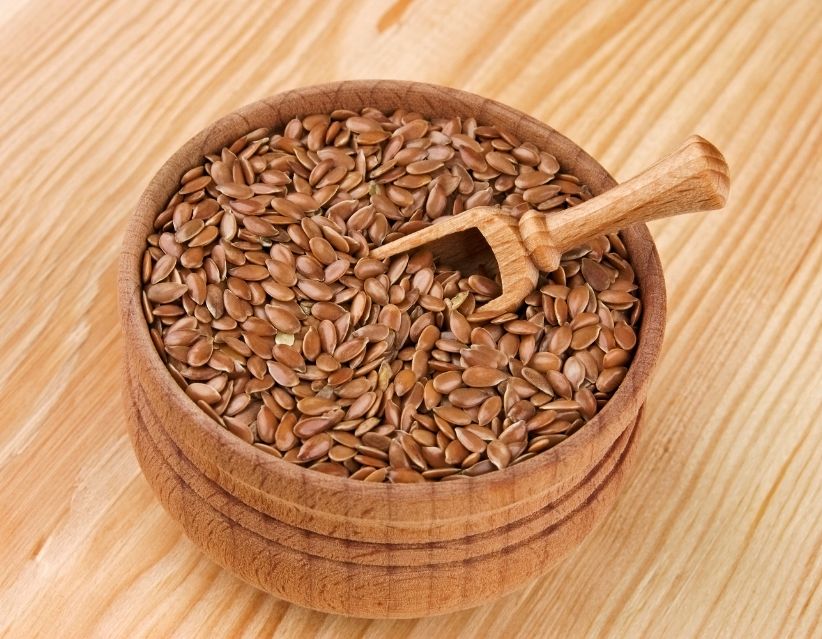I used to think that occasional bloating after meals was just part of life. Little did I know that my body was desperately trying to tell me something important about my gut health. After years of dismissing what I thought were minor digestive issues, I finally realized that my unhealthy gut was affecting everything from my energy levels to my mood.
If you're experiencing unexplained fatigue, skin problems, or digestive discomfort, your gut might be sending you warning signals too. The signs of bad gut health can manifest in surprising ways throughout your body, often appearing as seemingly unrelated symptoms that many people overlook.
In this comprehensive guide, I'll share the 15 most important warning signs that indicate poor gut health, drawing from both scientific research and my personal experience recovering from gut imbalance. You'll discover how to recognize these symptoms early and take action to restore your digestive wellness.
What Are Signs of Bad Gut Health?
Signs of bad gut health are physical and mental symptoms that indicate an imbalance in your gut microbiome - the trillions of bacteria living in your digestive tract. These warning signs can range from obvious digestive issues like bloating and constipation to unexpected symptoms like skin problems, mood changes, and chronic fatigue.
Your gut contains approximately 70% of your immune system and produces 90% of your body's serotonin. When this delicate ecosystem becomes imbalanced - a condition called dysbiosis - it can trigger a cascade of symptoms throughout your entire body, affecting everything from your mental health to your skin condition.
Why Does Gut Health Matter So Much?
Before diving into the specific warning signs, let me share why understanding gut health symptoms changed my life completely. Three years ago, I was dealing with constant brain fog, unexplained weight gain, and mood swings that I couldn't understand. My doctor ran countless tests, but everything came back "normal."
It wasn't until I started researching the gut-brain axis that I realized my digestive system might be the root cause of my problems. The gut microbiome doesn't just affect digestion - it influences your immune system, mental health, hormone production, and even your skin condition.
When your intestinal flora becomes imbalanced, it can lead to leaky gut syndrome, where the intestinal barrier becomes permeable and allows toxins to enter your bloodstream. This triggers systemic inflammation that can manifest as various symptoms throughout your body.
The 15 Most Common Signs of Bad Gut Health
Digestive Warning Signs
1. Chronic Bloating and Abdominal Distension
Persistent bloating was my first major red flag. Unlike the occasional fullness after a large meal, chronic bloating occurs regularly and can make your clothes feel tight even when you haven't eaten much. This happens when harmful bacteria in your gut produce excess gas during the fermentation process.
Key indicators:
- Bloating that occurs within 30 minutes of eating
- Abdominal distension that doesn't resolve overnight
- Feeling like your stomach is "ballooning" after normal-sized meals
2. Irregular Bowel Movements
Healthy digestion should result in 1-3 well-formed bowel movements per day. Constipation (fewer than 3 movements per week) or chronic diarrhea both indicate gut microbiome imbalance. I experienced alternating constipation and loose stools for months before addressing my gut health.
Normal vs. problematic patterns:
- Healthy: Regular, well-formed stools
- Concerning: Persistent constipation, chronic diarrhea, or alternating patterns
3. Excessive Gas and Flatulence
While some gas production is normal, excessive flatulence - especially with a strong odor - suggests bacterial overgrowth or food intolerances. This was particularly embarrassing for me during work meetings and social situations.
4. Heartburn and Acid Reflux
Gastroesophageal reflux disease (GERD) can stem from stomach acid imbalance and poor gut health. I used to experience burning sensations in my chest several times a week, especially after eating certain foods.
Systemic Signs Beyond the Digestive Tract
5. Unexplained Skin Problems
The gut-skin axis is real, and I learned this the hard way. My acne flare-ups, eczema patches, and general skin inflammation were all connected to my unhealthy gut. When gut bacteria produce toxins, they can trigger inflammatory skin conditions.
Common skin manifestations:
- Acne and breakouts
- Eczema and dermatitis
- Psoriasis flare-ups
- Rosacea symptoms
6. Chronic Fatigue and Low Energy
One of the most debilitating gut health symptoms I experienced was constant exhaustion. Your gut produces many B vitamins and helps absorb nutrients essential for energy production. When gut dysbiosis occurs, nutrient absorption suffers, leading to persistent fatigue.
7. Brain Fog and Cognitive Issues
The gut-brain connection means that poor gut health can directly impact your mental clarity. I struggled with concentration, memory problems, and feeling mentally "cloudy" throughout the day. This occurs because gut bacteria produce neurotransmitters that affect brain function.
Mental symptoms include:
- Difficulty concentrating
- Memory problems
- Feeling mentally "foggy"
- Reduced cognitive performance
8. Mood Changes and Mental Health Issues
Since 90% of serotonin is produced in the gut, gut microbiome imbalance can significantly impact your mood. I experienced increased anxiety, irritability, and even mild depression before addressing my gut health.
Immune and Inflammatory Responses
9. Frequent Infections and Illness
With 70% of your immune system located in your gut, bad gut health can compromise your body's ability to fight infections. I found myself catching every cold and taking longer to recover from minor illnesses.
10. Food Sensitivities and Allergies
Developing new food intolerances or worsening existing ones often indicates intestinal permeability (leaky gut). Foods that never bothered me before suddenly caused digestive distress and other symptoms.
Common trigger foods:
- Dairy products
- Gluten-containing grains
- Processed foods
- Artificial additives
11. Autoimmune Symptoms
Gut dysbiosis can trigger autoimmune responses where your immune system attacks healthy tissue. While I didn't develop a full autoimmune condition, I experienced joint pain and inflammation that resolved when I improved my gut health.
Metabolic and Weight-Related Signs
12. Unexplained Weight Changes
Gut bacteria influence metabolism, hormone production, and nutrient absorption. I experienced stubborn weight gain despite maintaining my usual diet and exercise routine. Certain bacterial strains can actually promote weight gain by extracting more calories from food.
13. Sugar Cravings and Blood Sugar Issues
Harmful gut bacteria thrive on sugar, creating a vicious cycle of cravings. I found myself constantly wanting sweets and experiencing energy crashes after meals, which indicated blood sugar instability linked to my gut health.
Sleep and Hormonal Disruptions
14. Sleep Disturbances
The gut produces melatonin and influences your circadian rhythm. Poor gut health can disrupt sleep patterns, causing difficulty falling asleep, frequent waking, or unrefreshing sleep. My sleep quality improved dramatically after addressing my gut issues.
15. Hormonal Imbalances
Gut bacteria help metabolize hormones, including estrogen and cortisol. Symptoms like PMS, irregular cycles, or stress-related issues can stem from gut microbiome imbalance. Women may notice worsening hormonal symptoms when gut health declines.
What Causes Bad Gut Health?
Understanding the root causes helped me prevent future gut health problems. The most common culprits include:
Dietary factors:
- Processed foods high in sugar and artificial additives
- Excessive alcohol consumption
- Insufficient fiber intake
- Lack of fermented foods
Lifestyle factors:
- Chronic stress and poor stress management
- Inadequate sleep (less than 7 hours nightly)
- Sedentary lifestyle
- Antibiotic overuse
Environmental factors:
- Exposure to toxins and chemicals
- Food additives and preservatives
- Contaminated water sources
How to Improve Your Gut Health Naturally
Dietary Strategies That Worked for Me
1. Increase Fiber-Rich Foods
I gradually increased my daily fiber intake to 35-40 grams through:
- Vegetables (especially leafy greens and cruciferous varieties)
- Fruits (berries, apples with skin, pears)
- Whole grains (quinoa, brown rice, oats)
- Legumes (beans, lentils, chickpeas)
2. Include Fermented Foods Daily
Probiotics from fermented foods helped restore my beneficial bacteria:
- Yogurt with live cultures
- Kefir (dairy or coconut-based)
- Sauerkraut and kimchi
- Kombucha (low-sugar varieties)
- Miso and tempeh
3. Add Prebiotic Foods
Prebiotics feed beneficial bacteria and include:
- Garlic and onions
- Asparagus and artichokes
- Bananas (slightly green)
- Oats and barley
Lifestyle Modifications
Stress Management
Chronic stress devastates gut health by altering the microbiome and increasing intestinal permeability. I implemented:
- Daily meditation (even 10 minutes helps)
- Regular exercise (walking, yoga, strength training)
- Adequate sleep (7-9 hours nightly)
- Stress-reduction techniques
Hydration and Timing
- Drinking 8-10 glasses of water daily
- Eating meals at consistent times
- Allowing 12 hours between dinner and breakfast
- Chewing food thoroughly
When Should You See a Healthcare Professional?
While many gut health symptoms improve with lifestyle changes, certain warning signs require medical attention:
Seek immediate care for:
- Blood in stool or vomit
- Severe abdominal pain
- Persistent fever with digestive symptoms
- Sudden, severe changes in bowel habits
- Signs of dehydration
Consult a healthcare provider for:
- Symptoms lasting more than 4 weeks
- Significant weight loss or gain
- Persistent fatigue affecting daily life
- Worsening food sensitivities
- Suspected autoimmune symptoms
The Science Behind Gut Health Recovery
Research shows that the gut microbiome can begin changing within 24-72 hours of dietary modifications. However, establishing lasting changes typically takes 4-12 weeks of consistent healthy habits.
Timeline of improvement:
- Week 1-2: Reduced bloating, improved digestion
- Week 3-4: Better energy levels, clearer skin
- Week 6-8: Mood improvements, better sleep
- Week 8-12: Optimal gut balance, reduced symptoms
Key Takeaways for Better Gut Health
Recognizing the signs of bad gut health is the first step toward reclaiming your wellness. Remember these essential points:
- Gut health symptoms extend far beyond digestive issues
- The gut-brain axis connects digestive health to mental wellness
- Dietary changes can begin improving gut health within days
- Stress management is crucial for maintaining gut balance
- Consistency in healthy habits produces lasting results
My Personal Transformation Story
Looking back on my gut health journey, I'm amazed at how much my life has changed. The chronic bloating that made me uncomfortable in my own clothes? Gone. The afternoon energy crashes that made me reach for caffeine? History. The skin problems that affected my confidence? Cleared up completely.
The most surprising change was my mental clarity. I had no idea how much brain fog was affecting my work performance and personal relationships until it lifted. Now, three years later, I maintain my gut health through consistent daily habits, and I rarely experience any of the warning signs that once plagued my life.
Conclusion
The signs of bad gut health are your body's way of communicating that something needs attention. From digestive symptoms like bloating and irregular bowel movements to systemic effects like skin problems and mood changes, these warning signals shouldn't be ignored.
By understanding these 15 key indicators and taking proactive steps to support your gut microbiome, you can transform not just your digestive health, but your overall quality of life. Remember, improving gut health is a journey, not a destination. Start with small, sustainable changes, and be patient with your body as it heals.
Your gut health affects every aspect of your wellbeing. The sooner you recognize and address the signs of bad gut health, the sooner you can start feeling like your best self again.
Sources
- Healthline
- Seed.com
- GoodRx
- HUM Nutrition
- InnerBuddies
- Weareheylo.com
- Gimed.net











